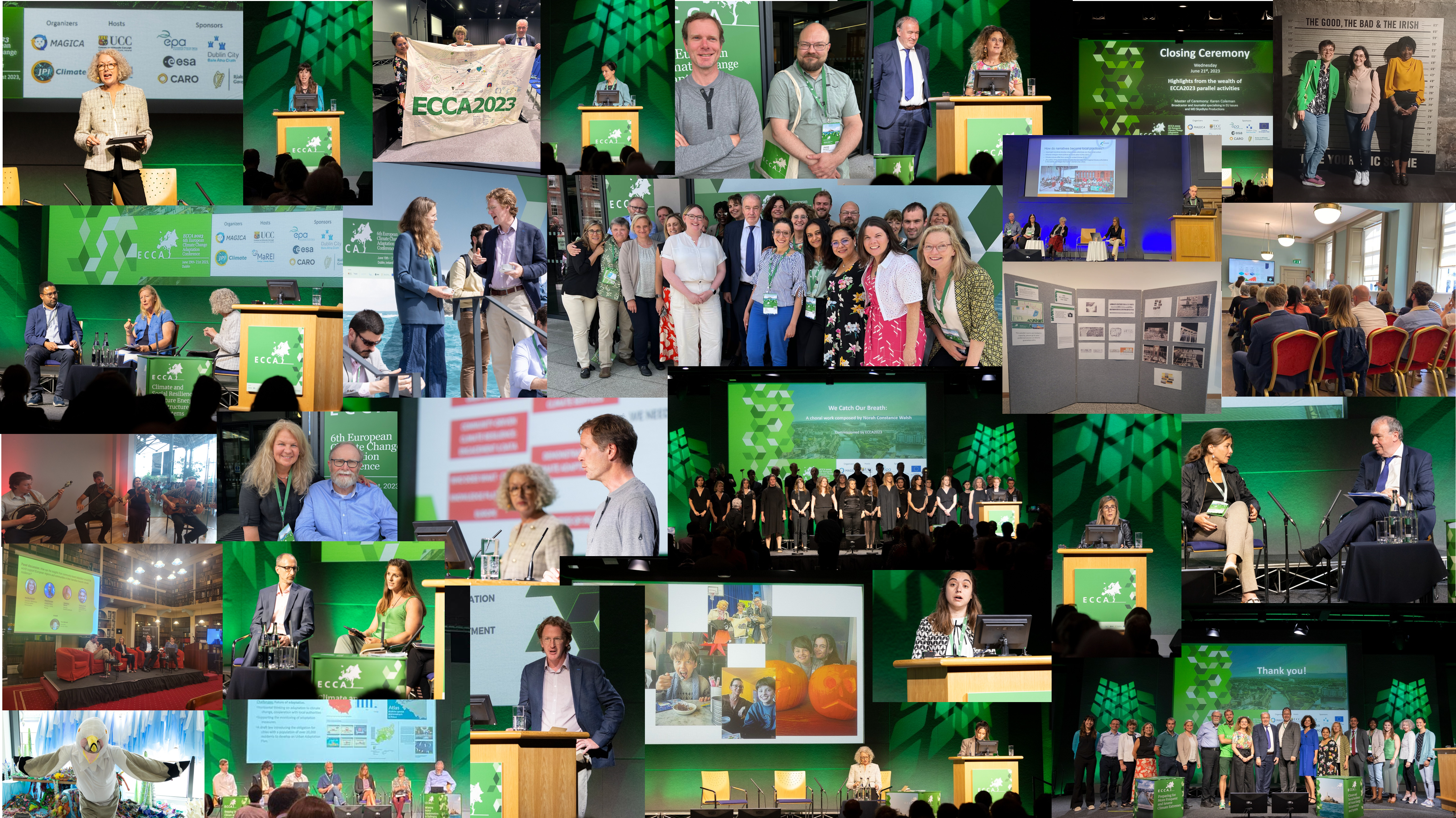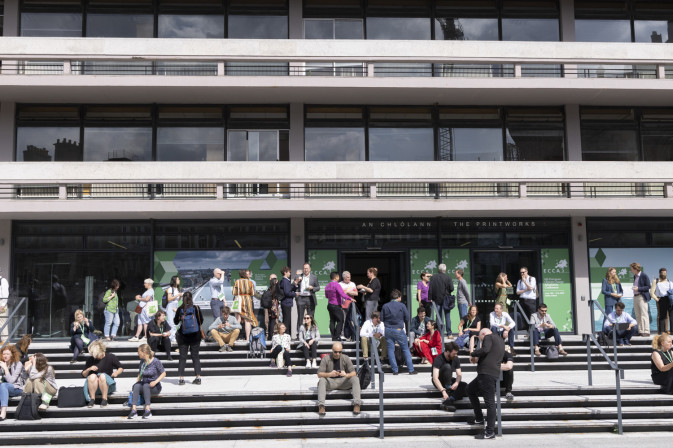ECCA2023 closed yesterday (Wednesday), after two busy and productive days, with a standing ovation for the world premiere of a specially commission choral work performed by Dublin choir, Mellow Tonics and written by Norah Constance Walsh.
The Dublin Castle Printworks conference hall erupted into cheers and applause after the vocal performance, inspired by a climate speech by former Irish President Mary Robinson and poem by Moya Cannon. It summed up the diversity, passion and enthusiasm of the ECCA2023 programme, contributors and audiences. The legacy of the 6th European Climate Change Adaptation Conference will be to bring together scientific research and policy-making, underpinning better-informed decisions at transnational, regional, national and local levels. Instead of science informing policy, participants were urged to collaborate from the earliest stages.
From school children and youths upwards engagement, dialogue and communications for every generation were shared. Wolfgang Pfefferkorn, Vice-Chair of co-organisers JPI Climate, said in the closing plenary: “We must change the rules of how science is made.” He called on funders to insist that the projects they finance should pay for the time of users, stakeholders and citizens to be part of the research from the earliest stages to ensure that it is inclusive.
More than 450 in-person delegates and more than 1,000 online attendees promoted science, decision-support tools and case studies for climate adaptation during ECCA2023. On the final day the overall message was the importance of involving the whole of society in implementation of adaptation, every generation, every level of governments and every sector.
The closing plenary began with a discussion between Frank McGovern, Chair of JPI Climate, and Susanne Mecklenburg, Head of ESA’s Climate Office. ESA was one of the conference sponsors and is keen to encourage the take-up of Earth Observation data for climate adaptation services. She said: “There is a multitude of valuable sources up there [space] for applications – and new missions will expand that portfolio.” She highlighted datasets in the Climate Change Initiative (CCI) and the Copernicus Climate Data Store that are freely available and modelling and projection capabilities.
Speakers reflecting on the ECCA2023 debates and sessions they had joined included Marie Donnelly, Irish Climate Council, Suraje Dessai, European Scientific Advisory Body for Climate Change, Anna Hulda Ólafsdóttir, organiser of NOCCA23 which held a side event on Monday, who is also Director of Icelandic Climate Services and Adaptation Centre, Alain Bourque, of Ouranos, organiser of Adaptation Futures2023 which will be held in Montreal, in Canada, and Oileán Carter Stritch, Ireland’s Climate Youth Leader.
Early key messages gathered by the conference theme leaders were captured from the almost 70 sessions, again reflecting the broad range of topics and diversity of content, covering collaboration, creativity, equality, implementation, tools, narratives, politics, finance, communities and much more. These will be developed into cohesive guidance for advancing adaptation.
Oileán captured the mood of the conference when she declared: “How can all this service future generations? We can forget that what we are talking about affects real people’s lives. This issue is intergenerational and it takes a whole family.”
The final task was to announce the next host of ECCA, which will be held in 2025. That honour goes to Italy and host organiser CMCC, the Euro-Mediterranean Center on Climate Change.

Highlights of ECCA2023 conference on Wednesday 21st, 2023
Catch up on the final day of ECCA2023 by watching the live streamed plenary on YouTube: https://www.youtube.com/watch?v=Jl7bdbgl0Yk
Read more about ECCA2023 conference here
Explore the photo galleries from:
-ECCA2023 Monday 19 June, 2023 here.
-ECCA2023 Tuesday 20 June, 2023 here.
-ECCA2023 Wednesday 21 June, 2023 here.
-ECCA2023 Extra photos (side events, creative arts, presentations, workshops, etc.) here.
